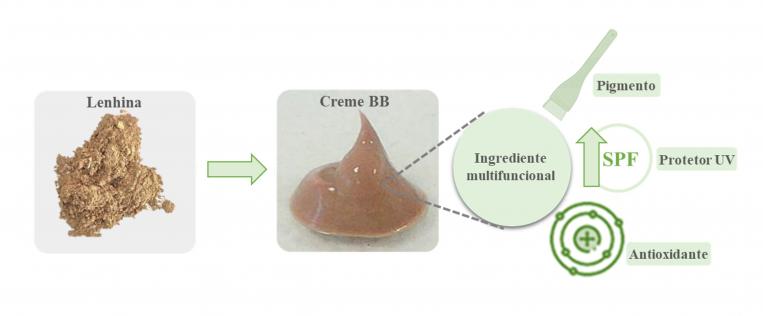
Sun protection stands as one of the paramount concerns in skincare, extending far beyond just the bathing season. Nowadays many cosmetic products, such as moisturising creams and foundations, contain filters against ultraviolet (UV) rays to guarantee this protection. However, despite the beneficial effects, there are growing questions about the real safety of some UV filters, both for health and the environment. On the other hand, there is a greater knowledge about the results of UV exposure: it is well-known that oxidising molecules (based on oxygen) are formed, leading to signs of ageing (and even skin cancer). It is not surprising that the cosmetics industry is closely examining ingredients capable of effectively neutralising oxidative agents, providing protection against UV radiation, and ensuring utmost safety.
Lignin is a strong candidate. This molecule may have a difficult name to pronounce, but anyone who has seen trees has seen lignin. It is an abundant component of practically all plant tissues and is fundamental in the conduction of water and nutrients, defence against pests and diseases, and contributes to the shape and structure of plants.
Recently, CBQF - the Research Centre of the Faculty of Biotechnology at Católica, scientifically proved that lignin extracted from sugarcane bagasse is an excellent multifunctional ingredient: it is not only an antioxidant, but it also protects against UV rays and acts as a natural pigment. Furthermore, since bagasse is a byproduct of sugar production, utilising its lignin content means adding value to a renewable resource that would otherwise go to waste. The study involved a series of tests to assess the safety of skin application and efficacy as a cosmetic ingredient. Safety was assessed by cytotoxicity, mutagenicity, sensitivity, and skin irritation tests. Regarding UV protection, the results were quite surprising, with the moisturising cream formulation (containing 5% lignin) showing high protection values (around 10 on the SPF scale of sun protection).
Additionally, the formulation showed broad-spectrum UV protection, demonstrating the ability to absorb both type A and B UV rays. The results also revealed that lignin remains active as an antioxidant after incorporation into the formulation. Based on this scientific study, it can be concluded that lignin from sugarcane bagasse waste offers innovative and sustainable benefits to cosmetic products, acting as a natural, safe, and ecologically responsible multifunctional ingredient.
The full study can be consulted on this page: https://doi.org/10.1016/j.ijbiomac.2023.123592


